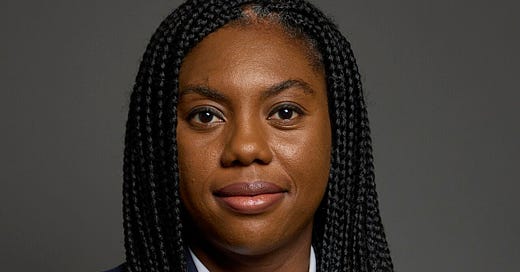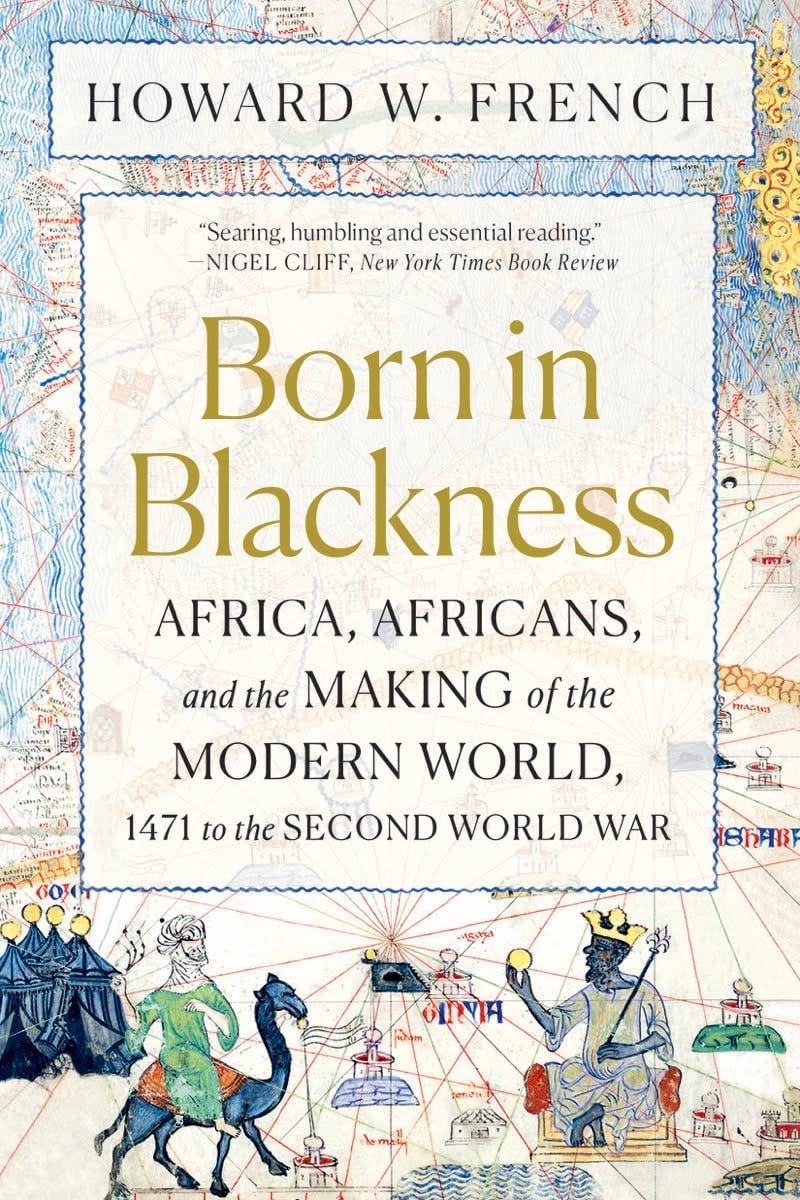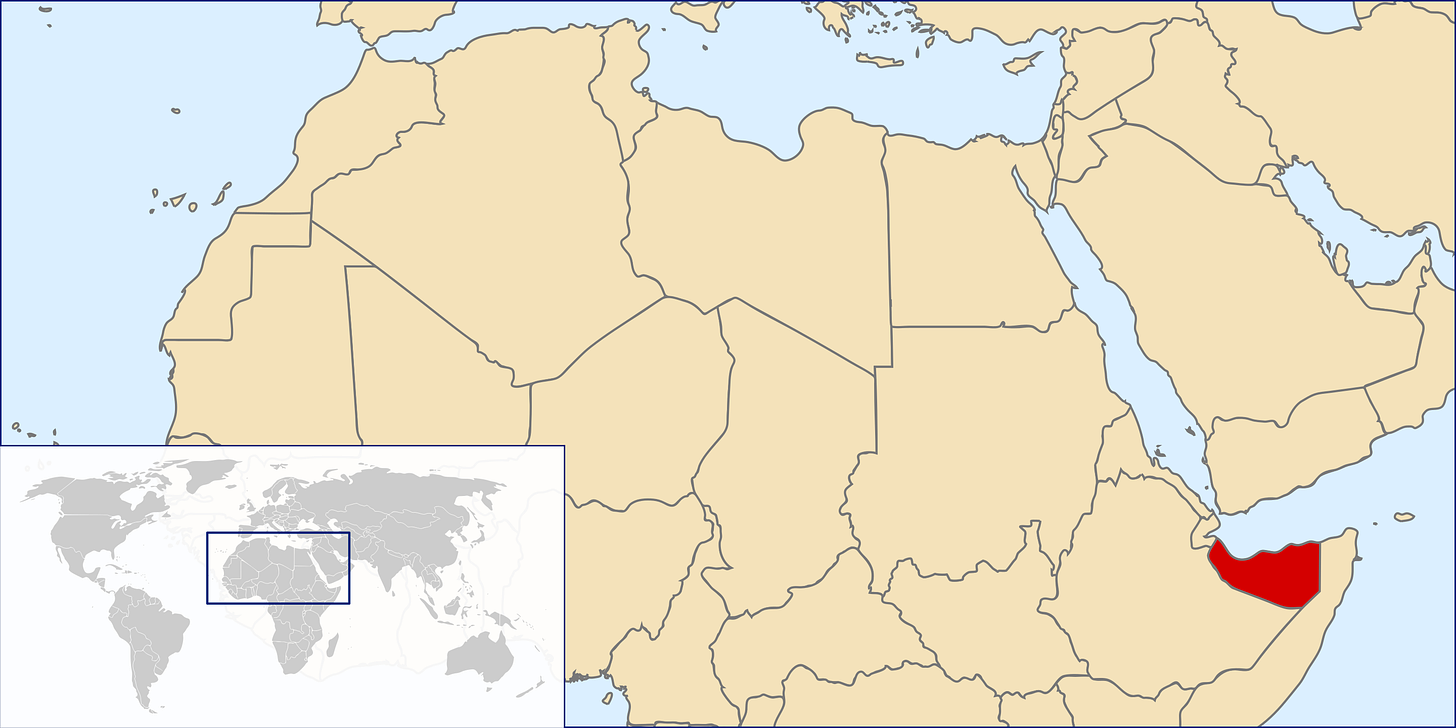🔅 Is Kemi Badenoch Breaking an Honor Code?
Africa's Struggles: It's Time to Look Within & Somaliland Votes
Image of the Day
Good Morning from Ghana

Spotlight Stories
Kemi Badenoch: Breaking the Nigerian Diaspora's Unwritten Honor Code?
When Kemi Badenoch became the first black woman to lead the UK's Conservative Party, you'd think Nigerians worldwide would be popping champagne and sending congratulatory DMs.
But instead, the 44-year-old daughter of Nigerian immigrants found herself in the middle of a diaspora drama.
You see, Kemi seems to have broken the unspoken "honor code" that says if you're Nigerian, you never, ever "take sides against the family," no matter how far you roam. And apparently, Ms. Badenoch missed that memo.
Her crime? Daring to speak openly about the dysfunction she fled in Nigeria as a child. We're talking vivid descriptions of homework by candlelight, water shortages, and fuel scarcity in an oil-rich nation – the stuff Nigerians know all too well but don't exactly love hearing from one of their own who's "made it" abroad and publicises it for the rest of the world.
Even worse, Ms. Badenoch committed the ultimate diaspora faux pas by referring to the UK as "my country" and saying she doesn't want it to "become like the place I ran away from." Cue the accusations of "Nigeria-bashing" and "betraying her roots."
But here's the thing: Nigerians themselves are often the first to complain about the country's problems. So why the double standard for Ms. Badenoch?
It all comes down to that honor code. For many Nigerians (and Africans generally), your heritage sticks with you for life, no matter where you end up. Fully embracing a foreign identity while disparaging the motherland is seen as a violation of that sacred bond.
Plus, there's the whole issue of Ms. Badenoch's conservative British politics (Labour = Good, Conservative = Bad), which rub many Nigerians the wrong way (never mind that most Nigerians are pretty conservative themselves when it comes to things like family and religion).
At the end of the day, the Badenoch brouhaha reveals the complexities of the diaspora-homeland relationship. And it’s fascinating to study.
Africa's Struggles: It's Time to Look Within
Howard W. French, author of "Born in Blackness," which we wrote about a couple of weeks ago, has written a piece in Foreign Policy, where he takes a hard look at the crises plaguing Africa. But he's not just here to point out the problems; he's got some thoughts on how to fix them.
According to French, Africa's woes have more layers than an onion. From the colonial legacy of exploitation to the global economy's structure that seems to have left the continent in the dust, there's no shortage of factors at play. But French argues that it's time for Africa to look inward for solutions.
The good news? It's already happening. Civil society groups are rising up like a phoenix from the ashes, fighting corruption, electoral shenanigans, and human rights violations. From Ghana to Nigeria to Kenya, people are hitting the streets, braving bullets and tear gas to hold their governments accountable.
French highlights the work of Bright Simons, a Ghanaian gadfly who's like the Batman of transparency, using his social media presence to shed light on everything from shady real estate deals to murky oil leases. Simons sees hope in the spread of these movements across the continent, but he knows it's going to take more than a few intellectual heroes to get the job done.
The key, according to Simons (and French agrees), is to unite civil society efforts across Africa. If critical mass can't be found in individual countries, it needs to be built in a pan-African way. You can read his piece here.
Somaliland's Presidential Election
Somaliland, a self-declared state that broke away from Somalia in 1991 but remains unrecognized internationally, has gone to the elections. The two main candidates, incumbent President Muse Bihi Abdi of the Kulmiye Party and opposition leader Abdirahman "Irro" Mohamed Abdullahi of the Wadani party, are campaigning on a range of issues, from the rising cost of living to territorial disputes.
However, the election's most significant talking point is President Abdi's landmark "port-for-recognition" deal with neighboring Ethiopia. The memorandum of understanding, signed in January, would allow landlocked Ethiopia to use Somaliland's Berbera Port in exchange for an "in-depth assessment" of Somaliland's quest for official recognition. While not explicitly promising recognition, Somaliland authorities see this as a step towards achieving their long-sought goal.
The port deal has caused a diplomatic fallout between Ethiopia and Somalia, with the latter viewing Somaliland as part of its territory. Somalia has condemned the agreement, expelling an Ethiopian diplomat and strengthening ties with Ethiopia's rival, Egypt. The two countries, along with Eritrea, have pledged to bolster security cooperation in the region.
Egypt and Ethiopia have been at odds over the controversial Grand Ethiopian Renaissance Dam project on the Blue Nile River, which Egypt fears could threaten its water supply.
Opposition candidate Irro has capitalized on the regional tensions, criticizing President Abdi for his handling of the port deal and its impact on relations with Somalia. However, both candidates seem to agree on the importance of the agreement for Somaliland's future, with the potential for economic growth and international recognition.
As the election unfolds, the port deal remains a central issue, with Somaliland authorities ready to proceed despite regional pushback. Ethiopia has yet to set a date for finalizing the lease agreement or officially recognizing Somaliland, possibly to avoid escalating tensions further.
Food for Thought
“Blame the obstacle that caused your fall and not the ground you fell on.”
— Namibian Proverb







Badenoch is a disappointment to many Africans like me living in the UK, and not just because she’s broken the ‘honour code’. As the daughter of immigrants her attitude to those now seeking citizenship seems heartless and hypocritical.